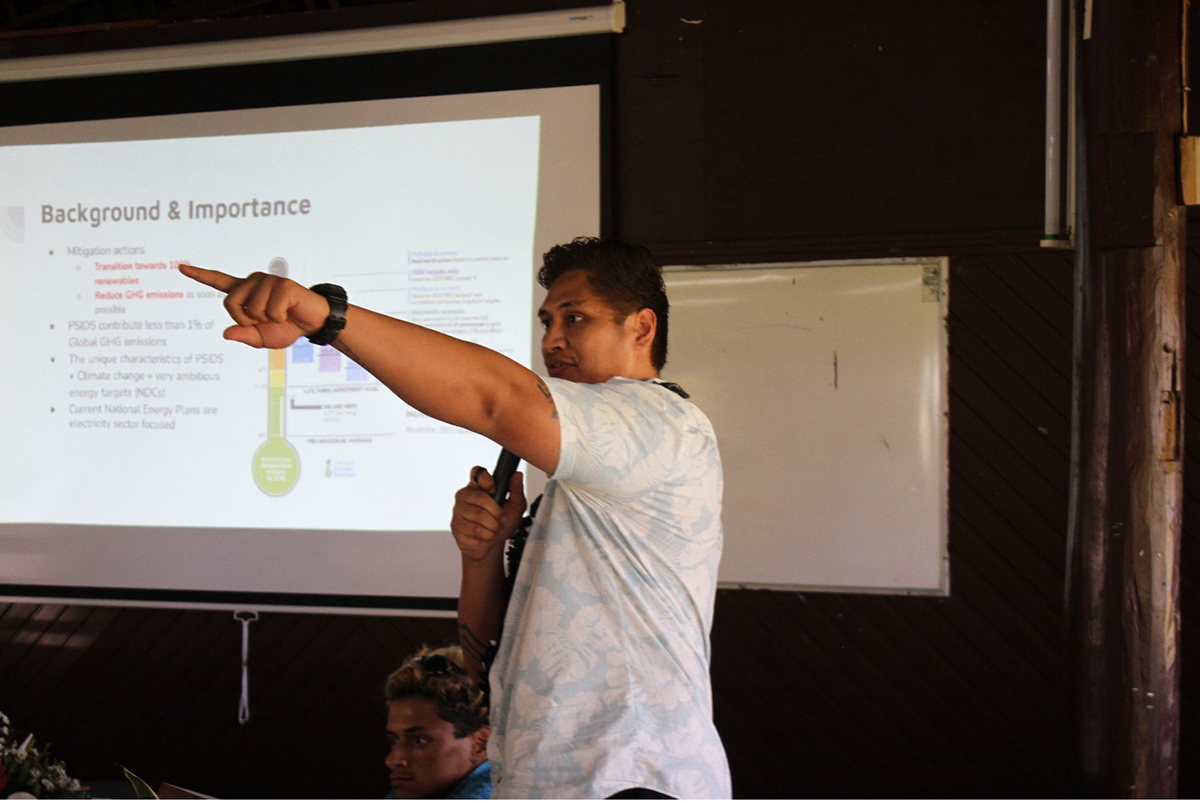"Electric vehicles: for developed and developing nations"
August 18 A shift in the cost of renewable energy has Khadija Holder, 24, a Commonwealth Correspondent from Trinidad and Tobago, taking a new look at the viability of electric vehicles. She argues the innovative vehicles now making gains in developed countries can be equally beneficial in developing nations.
A shift in the cost of renewable energy has Khadija Holder, 24, a Commonwealth Correspondent from Trinidad and Tobago, taking a new look at the viability of electric vehicles. She argues the innovative vehicles now making gains in developed countries can be equally beneficial in developing nations.
Years ago, a debate with me on the winning energy strategy for developing countries would have hosted me undauntedly arguing that hydrocarbons are an essential component of the energy mix of developing countries.
At that time, I believed the best option for tackling energy issues moving forward was simply ceasing the over-exploitation of hydrocarbons and creating a more balanced mix. The central pursuit of a green strategy was not my thesis, due to the high expense that countries – which were already financially indebted – must absorb to switch to a renewable system. With renewable energy costs steadily decreasing, admittedly, this advocacy may have been linked to reasons influenced by the recognition of how much countries within my region (e.g. Trinidad and Tobago and Venezuela) depended upon oil and gas revenue. However, experience, knowledge and exposure has indeed taught me that ignorance is risk, not bliss.
I recently conducted in-depth analysis and completed a policy document on electric vehicles (EVs) in Barbados and I have since found the EV to be a timeless medium of sustainable efficiency and prosperity, which can provide positive benefits for both the developed and developing. Developed countries like Norway, the United Kingdom and the United States have been continuously viewed and studied as the world’s EV leaders and EV efficient climates. Yet long running global perception that development strategies that have worked for the rich will not work for the poor has caused widespread belief that EVs are not suitable to a developing economy. However, there are significant prospects for an EV-adopting developing country.
Many developing countries are affected by challenges to fuel security, oil price volatility, trade deficits due to high net imports of oil and gas, vulnerabilities to natural disasters, high rates of non-communicable diseases and reduction in tourist arrivals. The EV’s direct power source from electricity, decarbonisation of the transport sector and elimination of the internal combustion engine, allows it to reduce carbon emissions, improve local air quality, reduce gas imports, create a tourist-friendly atmosphere, increase human well-being, reduce local health issues caused by carbon emissions, reduce pollution and protect the coastal ecosystems, protect the country’s ecological capital and future generations, and produce positive externalities that benefit other sectors.
Given that global EV production is expected to rise by 67 per cent in 2014 (IHS Automotive), prices of EVs are therefore expected to continuously fall due to economies of scale. Developing countries should not be left behind in EV adoption and resulting economic and environmental development. While OPEC nations and other hydrocarbon-rich countries may be at first stricken by loss in sales, the adoption of EVs provides a more long-term benefit by reducing dependency, facilitating value-added opportunities for diversity and new innovation, and improving human prosperity. Furthermore, fossil fuel-based transportation constitutes the second largest source of carbon dioxide emissions worldwide (IEA Statistics 2012).
Given that climate change effects can be mitigated by the reduction of carbon emissions, EVs present a viable measure. SIDS (2014) has called for ‘more innovative ways to be developed to provide incentives for actions that improve the environment’. The EV is such an innovation.
References
IHS (2014) “Global Production of Electric Vehicles to Surge by 67 Percent This Year”, 4 February.
International Energy Agency Statistics (2012), “CO2 Emissions from Fuel Combustion: Highlights”.
Small Island Developing States (2014), “Barbados National Assessment Report: for the Third International Conference on Small Island Developing States”, Apia: Samoa.
photo credit: fabi42 via photopin cc
…………………………………………………………………
About me:
Discovering my great passion and ambition to advocate for global progress through research-writing stands as one of my most fulfilling attainments to date. I am currently a Research Fellow at the Caribbean Centre for Research on Trade and Development (CCRTD), a Research Consultant for JDR Research Solutions Barbados, a Researcher at Athens Development and am becoming internationally certified in Spanish and French. In my spare time I engage in volunteerism through organizations such as Junior Achievement.
…………………………………………………………………………………………………………………
Opinions expressed in this article are those of the author and do not necessarily represent the views of the Commonwealth Youth Programme. Articles are published in a spirit of dialogue, respect and understanding. If you disagree, why not submit a response.
To learn more about becoming a Commonwealth Correspondent please visit: http://www.yourcommonwealth.org/submit-articles/commonwealthcorrespondents/
…………………………………………………………………………………………………………………




